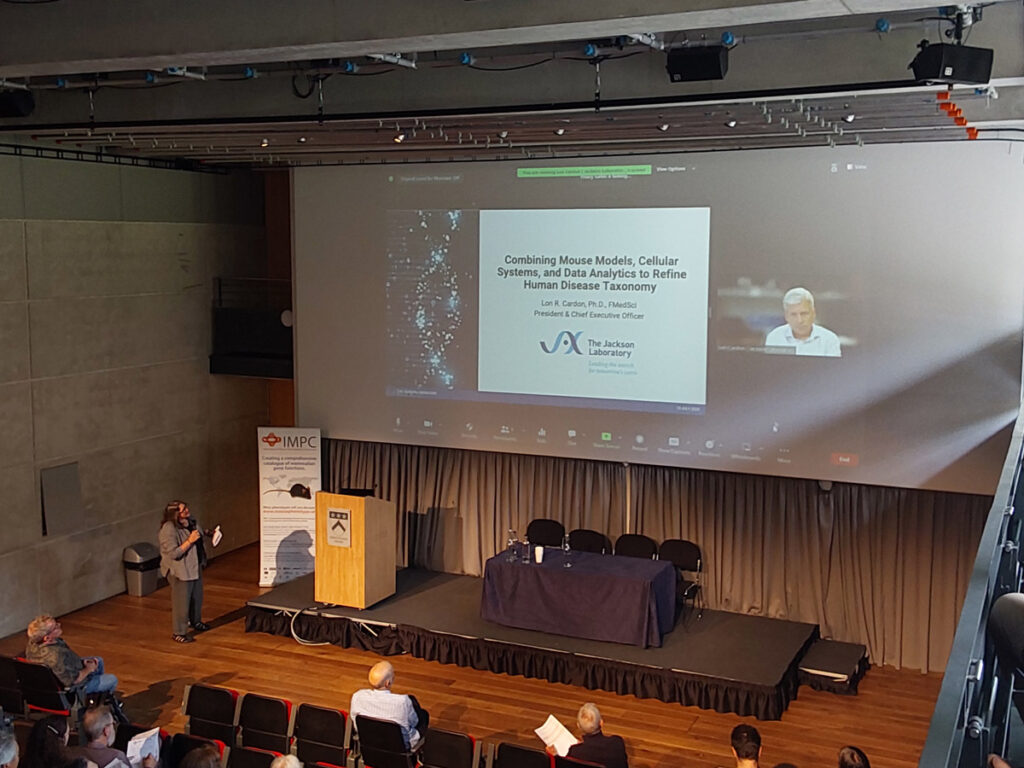The Power of Mouse Genetics: Opportunities for Genomic and Precision Medicine
From July 9-12, the International Mouse Phenotyping Consortium (IMPC) held its annual conference at Keble College, Oxford, UK, titled “The Power of Mouse Genetics: Opportunities for Genomic and Precision Medicine”.
The IMPC’s goal is to determine the functions of some 18,000 genes common to mice and humans. This global effort is systematically turning off the protein-coding genes in the mouse genome in order to assess the physiological characteristics associated with each gene.
This meeting convened speakers at the forefront of human genetics and mammalian biology with the aim of translating the outcomes of the IMPC project for the benefit of human health and to understand gene function.

Our international IMPC conference shows how the mouse is a key model organism to assess mammalian gene function’ said Prof. Yann Hérault, Chair of the IMPC Steering Committee. ‘Work presented during the conference illustrates how the mouse can not only provide insights into physiology and disease but importantly serve as a ‘pointer’ for new discoveries in genomic and precision medicine.
The conference embraced four major themes:
- Genetics and disease
- Dissection of common and rare disease genetics using mammalian models
- Big challenges, big scale approaches
- Future Opportunities
Each of these themes was discussed by an outstanding list of international speakers at the forefront of mouse and human genetics and genomics*. Moreover, the conference reported on the progress of the consortium in delivering a comprehensive catalogue of mammalian gene function.
For more information on the conference see: https://impc2023.com
*Invited international speakers
- Trevor Archer – NIEHS, USA
- Fatima Bosch Tubert – UAB, Spain
- Steve Brown – ICS, France
- Lon Cardon – The Jackson Laboratory, USA
- Elizabeth Fisher – UCL, UK
- Jeffrey Friedman – The Rockefeller University, USA
- Chris Holmes – Oxford University, UK
- Martin Hrabě de Angelis – Helmholtz Munich, Germany
- Manolis Kellis – MIT, USA
- Helen Parkinson – EBI, UK
- John Quackenbush – Harvard University, USA
- Toshihiko Shiroishi – RIKEN, Japan
- Robert Williams – The University of Tennessee, USA
- Brian Zambrowicz – Regeneron, USA

The International Mouse Phenotyping Consortium (IMPC) The International Mouse Phenotyping Consortium (IMPC) is an international effort by 21 research institutions to identify the function of every protein-coding gene in the mouse genome.
The entire genome of many species has now been published and whole genome sequencing is becoming relatively quick and cheap to complete. Despite these advancements the function of the majority of genes remains unknown. The IMPC’s mission is to fill this knowledge gap and create a comprehensive catalogue of mammalian gene function that is freely available for researchers.
IMPC data can be used in a variety of ways, such as to investigate basic biology mechanisms that can lead to new therapeutic targets or to narrow down a suspected list of genes in patients. In the last few years the IMPC have made major discoveries in parts of the genome that were hitherto unexplored, with new genes discovered that relate to areas such as metabolism, cardiovascular function, deafness, bone, pain, eye and many rare diseases.
The overall aim of the project is not only to develop insight into the function of every gene, but also to provide transformative insights into the genetic basis of disease that will impact upon clinical diagnosis and management and ultimately prevent, detect, diagnose and treat disease.

